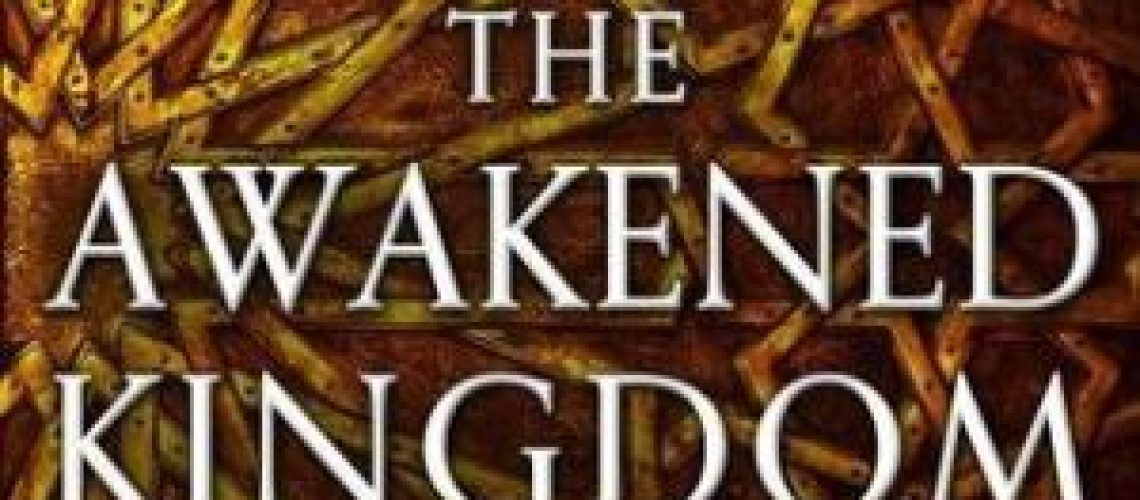The Awakened Kingdom, a 2014 fantasy novella by N.K. Jemisin released both as part of The Inheritance Trilogy omnibus and as a standalone e-book, is told from the point of view of a baby god. And as adorable as the central premise is, the execution is enough to sorely tempt me to quote large swaths of the text in lieu of a real review.
The novella opens thus:
I am born! Hello!
Many things happen!
The end!
Hello again! How are you? I am fine. I have learned more about the Proper Ways from Papa Tempa. Papa said that what I did before is not the Proper Way to tell a story, so I will do it over. I do not like the way he says I should tell it, though. That is BORING…
What follows is the coming-of-age story of Shill, a god newly born following the death of another god, in which she tries to find her purpose and her nature. Shill isn’t born knowing how to god, so to speak; her first attempt to interact with mortals results in, um, an accident:
I did not mean to break that planet it was just in the way when I came into being and I fixed it and I said I was sorry and the planet said OK so since I am supposed to learn from stuff like that I will tell you don’t break planets, especially the ones with living things on them, or at least fix them if you do break them. Also, don’t go in black holes, no matter how much they look like cute little Nahas. They are not cute! They are actually very bitey and kind of mean.
It should be obvious by now that the primary draw of this novella is the narrative voice, which changes gradually throughout the story as Shill grows up — though it never stops being poignant and funny. I suspect Shill’s voice will be enough to carry the parts of the book where she explains the basics of the world for readers that have read The Inheritance Trilogy, and I can state with certainty that the novella stands alone well for those who haven’t.* We get a child’s perspective on this secondary world’s celestial kingdom, which is inherently skeletal but also kinda brilliant.

There’s a plot and stuff (to reference Shill, many things do indeed happen), and the narration thereof meanders in a childlike way, with brief tangents and conflict between what Shill considers important and what’s important to the narrative; since Shill is consciously directing her own coming of age, the plot is, as such, a bit haphazard while retaining a core logic to it. Words cannot properly express how much I adore this style of storytelling in conjunction with the narrator. And most of the other characters consist of several other gods in the pantheon — who Shill briefly interacts with in a manner sometimes humorous, sometimes heartwarming, and often both. She also interacts with the spirits of cities and planets; these moments are a lot of fun. The second most significant character is the enigmatic half-mortal-half-something-else Eino, who also faces significant obstacles in finding his own purpose.
On a thematic level, The Awakened Kingdom also contains critiques of gendered social constructs and inequalities, and it says something about how much I loved the book that this loud feminist is spending so little relative text real estate on those elements relative to everything else. They’re there! The end!
——————————-
This novella as a singular entity should appeal to fans of Catherynne Valente’s Fairyland series and Karen Lord’s Redemption in Indigo.
——————————-
*However, it should be noted for readers that haven’t read the trilogy that this novella contains major spoilers for it.







